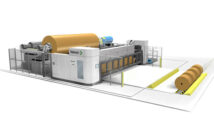
A new study commissioned by Cepi shows rapid developments in Europe’s biorefinery sector, which holds the possibility to replace many fossil-based products with alternatives.
The study, performed by nova-Institute, a German-based research institute, shows that biorefineries in the forest-based sector have more than doubled their turnover in just 3 years, reaching €6 billions. Biorefineries are facilities that convert biomass to a spectrum of beneficial byproducts. The new research covers the many biorefineries in Europe that are connected to the pulp and paper industry, which has been using similar processes for decades, mainly to power its own installations.
The new paper identifies 143 biorefineries on the European continent, 126 operational and 17 planned, in line with the results of a first study published in 2021, also commissioned by Cepi. The largest number of biorefineries is in Sweden, Finland, Germany, Portugal and Austria. But there are already biorefineries either operational or in development in 18 different European countries.
The products of biorefineries are broadly green alternatives to what is currently mostly delivered by Europe’s large petrochemical sector: materials, chemicals, fuels and energy, food and feed, pharmaceuticals and cosmetics. The demand for these products is ramping up, as many sectors, from aviation to fashion, are willing to pivot away from fossil-based feedstocks.
Biorefinery products currently correspond to 6% of European pulp and paper industry sector turnover as a whole. But the study’s projections, based on a large number of investment plans identified by researchers, show the share of emerging bio-based products to be substantially larger in the future, with an annual growth of up to 5% for the biorefinery sector until 2050.
These new ventures do not come as a replacement for traditional pulp and paper-making activities, but rather as a complement as they mobilise resources that would previously not be used commercially. They represent a way for companies in the sector willing to invest to develop new revenue streams while increasing efficient use of the resource.
This will have an impact on the EU’s capacity to reach its climate targets. The study quantifies a ‘substitution effect’ of over 3.1 megaton of CO2, by which bio-based products are already manufactured to replace those by fossil-based industries, resulting in a significantly lower impact on the climate.
Download Cepi’s biorefinery report executive summary.
“There is a lot more than can be done with a tree now than we knew just a decade ago, and there is also a lot more demand for products that are aligned with the planet. No other industry can bring together both the scale and the know-how when it comes to innovative bio-based products. For Europe, biorefineries present a promising growth potential, as only new technologies can readily help European economy to grow. Bioeconomy, and in particular the pulp and paper industry biorefineries, are leading the way.”
Jori Ringman, Cepi Director General

































